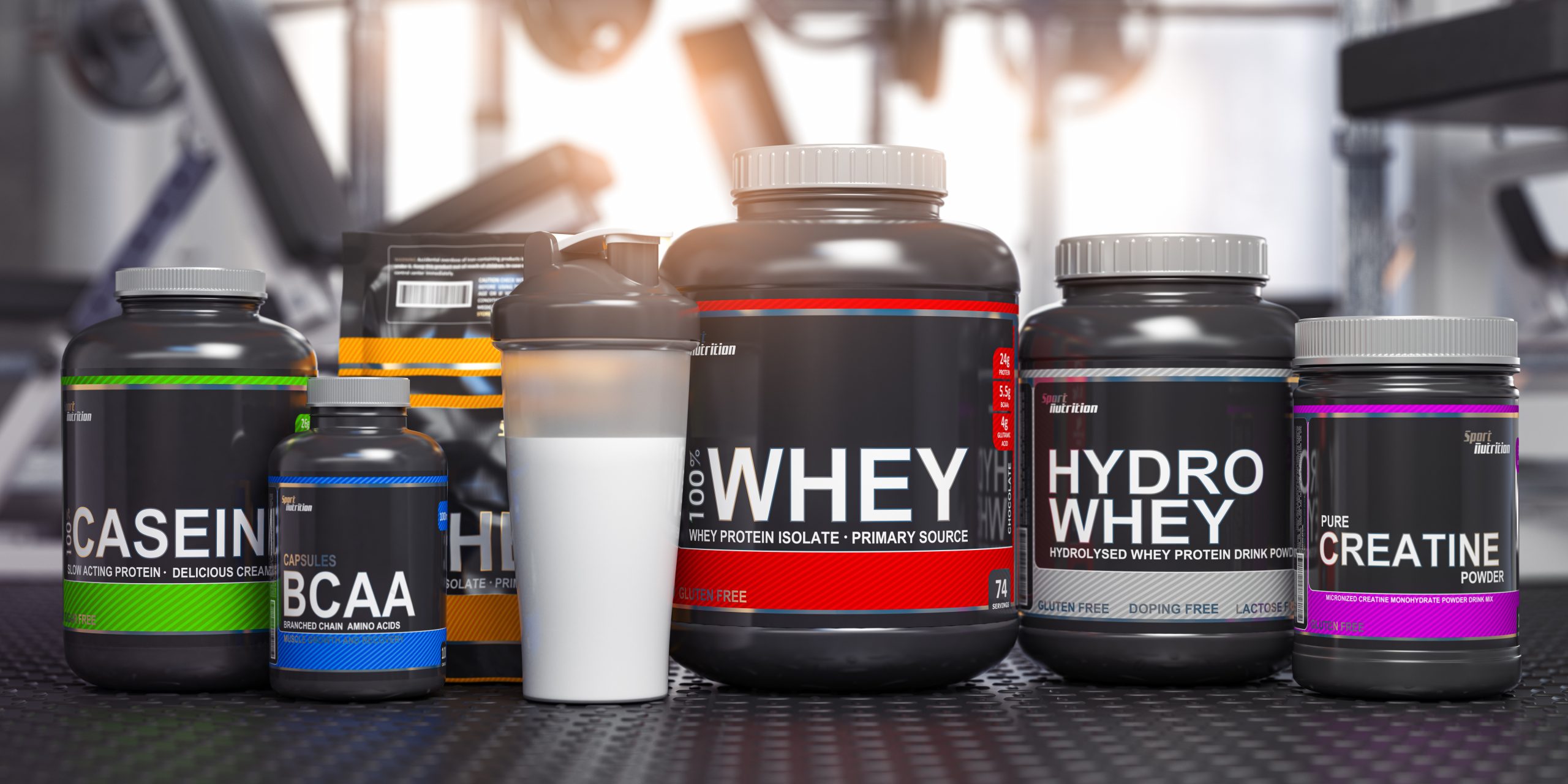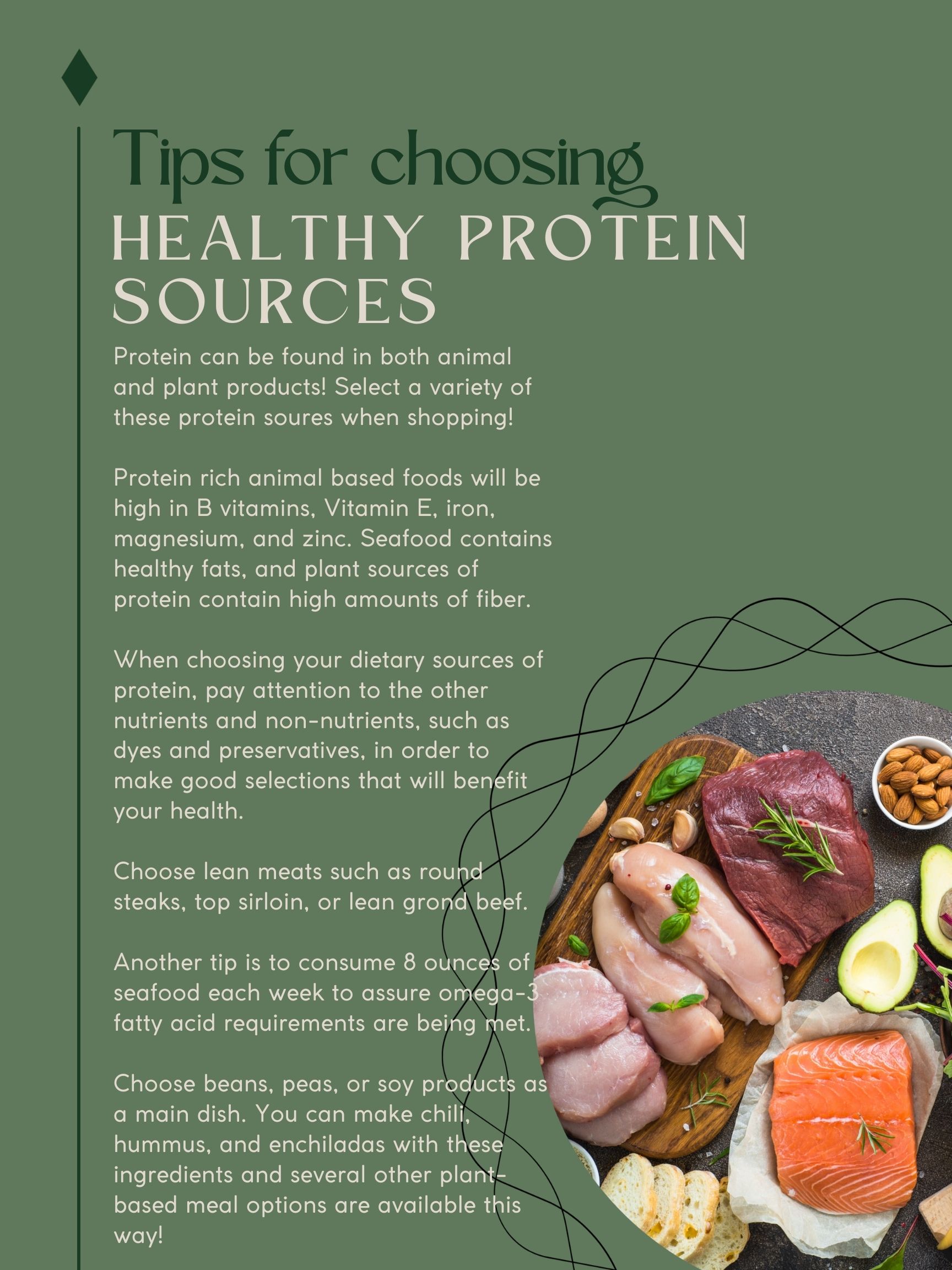7.6 Protein Supplements
Figure 7.11 Protein Supplements

There are many different types of protein supplements. Protein supplements include powders made from compounds such as whey, soy or amino acids that either come as a powder or in capsules. We have noted that the protein requirements for most people, even those that are active, is not high. Is taking protein supplements ever justified, then? Neither protein nor amino acid supplements have been scientifically proven to improve exercise performance or increase strength more than protein from whole foods. According to the Academy of Nutrition and Dietetics, American College of Sports Medicine, and Dietitians of Canada, the current evidence indicates that protein and amino acid supplements are no more or no less effective than food when energy is adequate for gaining lean body mass (1).
What about the numerous protein shakes and protein bars on the market? Are they a good source of dietary protein? Do they help you build muscle or lose weight as marketers claim? These are not such a bad idea for an endurance or strength athlete who has little time to fix a nutritious exercise-recovery snack or an individual who has trouble meeting their personalized protein requirements. However, before you ingest any supplement, do your homework. Read the label, be selective, and don’t use them to replace meals, but rather as exercise-recovery snacks or a way to add more protein to the foods you already eat. Some protein bars have a high amount of carbohydrates from added sugars and are not actually the best source for protein, especially if you are not an athlete. Most protein bars are nutritionally designed to restore carbohydrates and protein after endurance or strength training; therefore they are not good meal replacements. If you want a low-cost alternative after an intense workout, make yourself a peanut butter sandwich on whole-grain bread and add some sliced banana for less than fifty cents. This will ensure that you get carbohydrate and protein along with some healthy fats and micronutrients.
Supermarket and health-food store shelves offer an extraordinary number of high-protein shake mixes. While the carbohydrate count is lower now in some of these products than a few years ago, some brands still contain added fats and sugars. They also cost, on average, more than two dollars per can. If you want more nutritional bang for your buck, make your own shakes from whole foods. Use the Dietary Guidelines recommendations for macronutrients as a guide to fill up the blender. Your homemade shake can now replace or add to some of the whole foods on your breakfast, lunch, or dinner plate.
The bottom line is that protein supplements can help fill in gaps in your diet, especially if you’re always on the go and don’t have time to prepare a full meal. However, they are not superior to protein that you get from food and even if you consume protein supplements, you should still prioritize eating nutritionally balanced meals as often as possible. If your protein intake is low because you just don’t have time to cook and prepare balanced meals, here are some convenient sources of protein that don’t require much prep:
- 1 cup chickpeas (14 g protein): add to salads and tacos or roast and eat plain
- 6 oz Greek yogurt (18 g protein): add fruit or nuts for more nutrients
- 3 eggs (21 g protein): cook fresh or hardboil ahead of time for a grab and go snack
- 2 low fat cheese sticks (12 g protein): easy grab and go option
- 1 cup cottage cheese (28 g protein): good post workout snack with a piece of fruit or toast
- 2 oz deli turkey (11 g protein): eat plain or use in a sandwich/wrap
- 6 oz tofu (14 g protein): add to your cup of noodles, salads, pastas, or stir fries or bake with your favorite marinade and eat plain
Here are some more tips for choosing healthy dietary sources of protein.
Figure 7.12 Healthy Protein Sources

Media Attributions
- Protein Supplements © Adobe Stock is licensed under a All Rights Reserved license
- Healthy Protein Sources © Natalie Fox is licensed under a CC BY (Attribution) license
